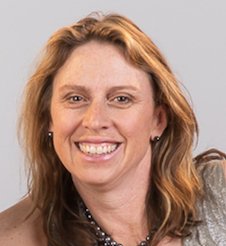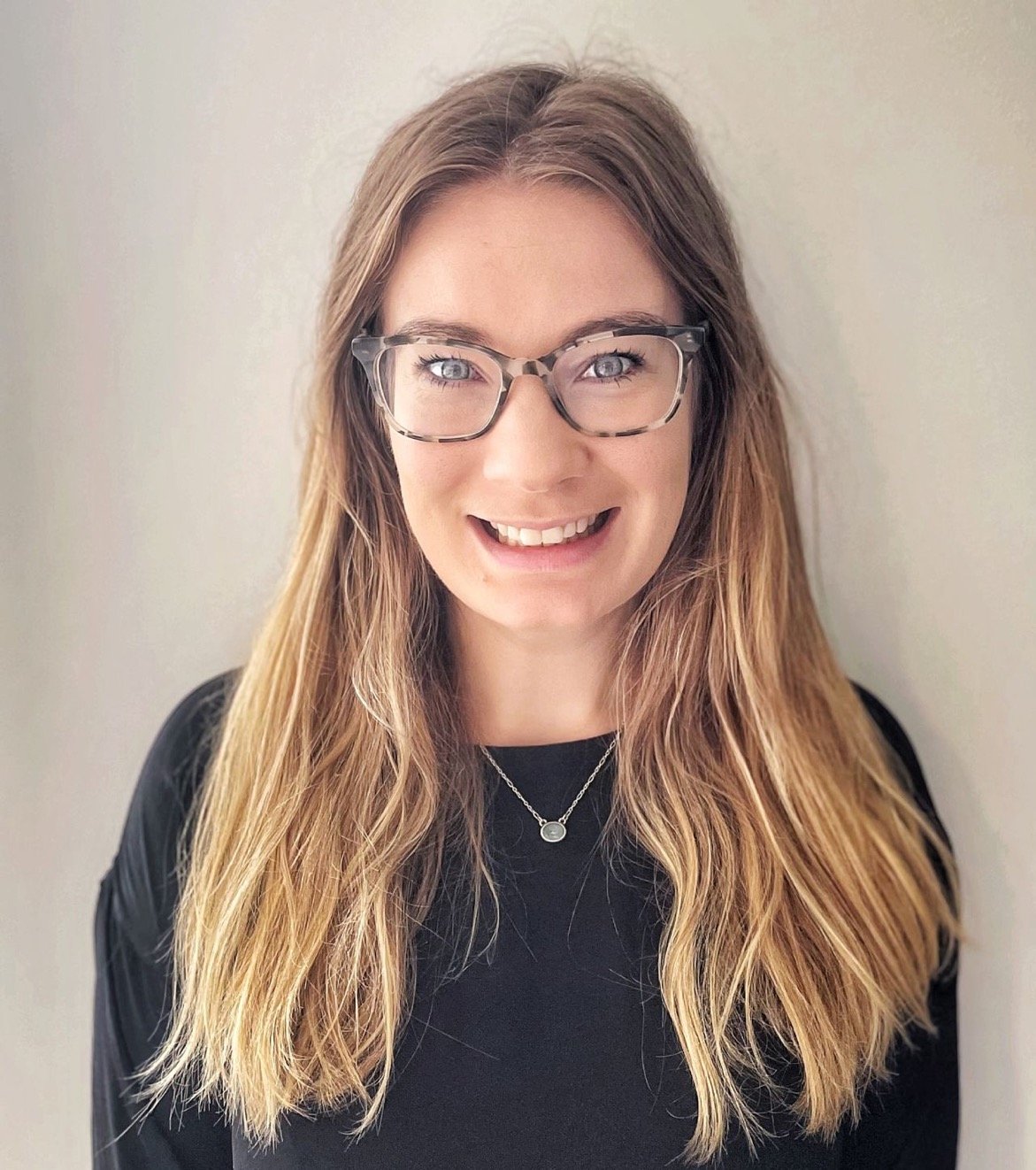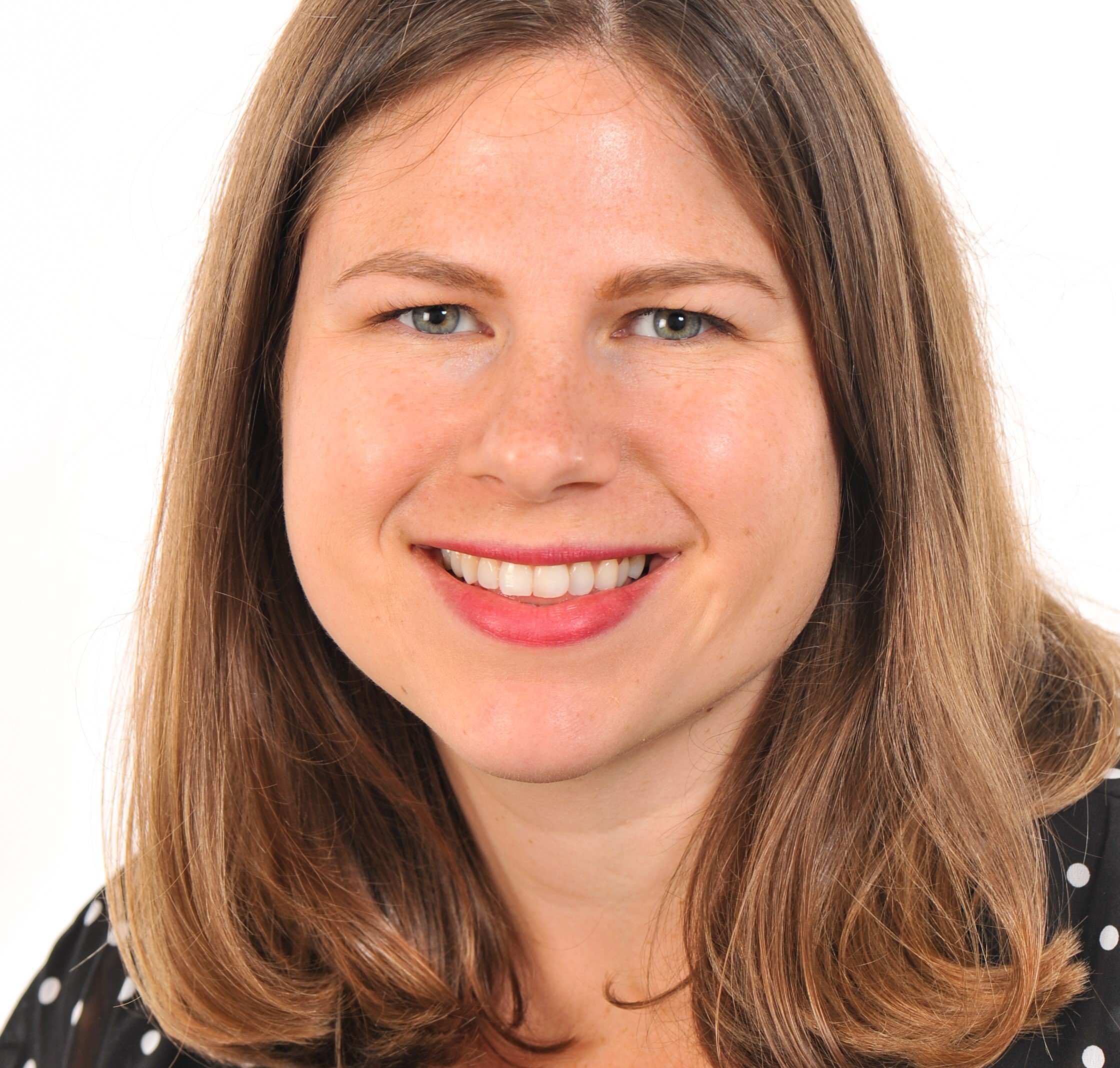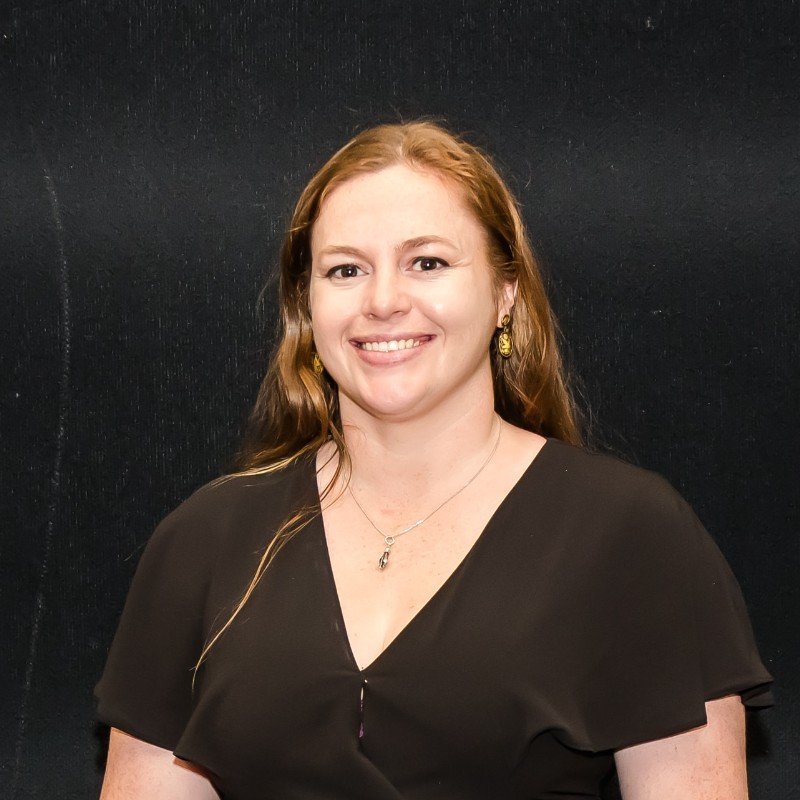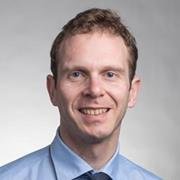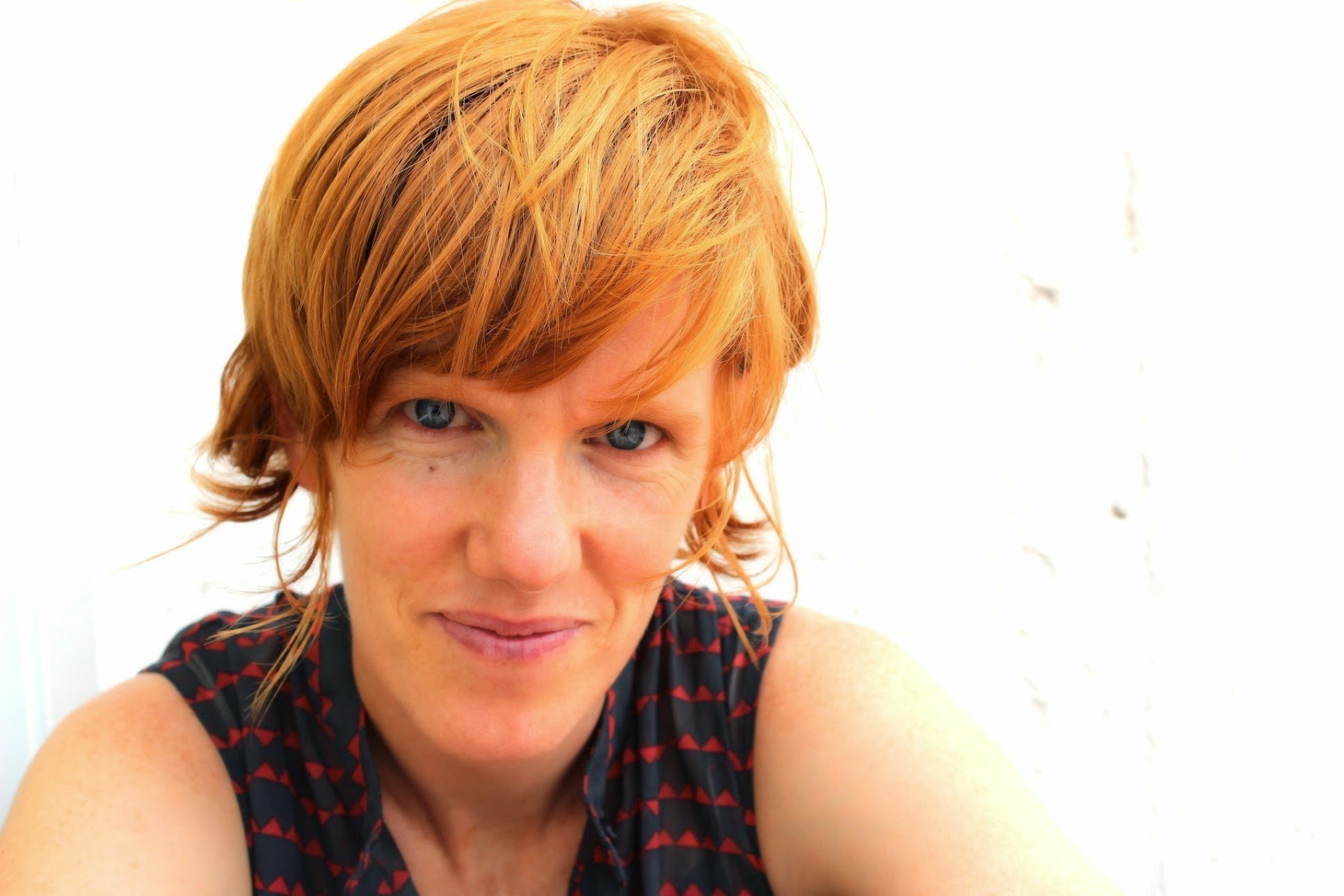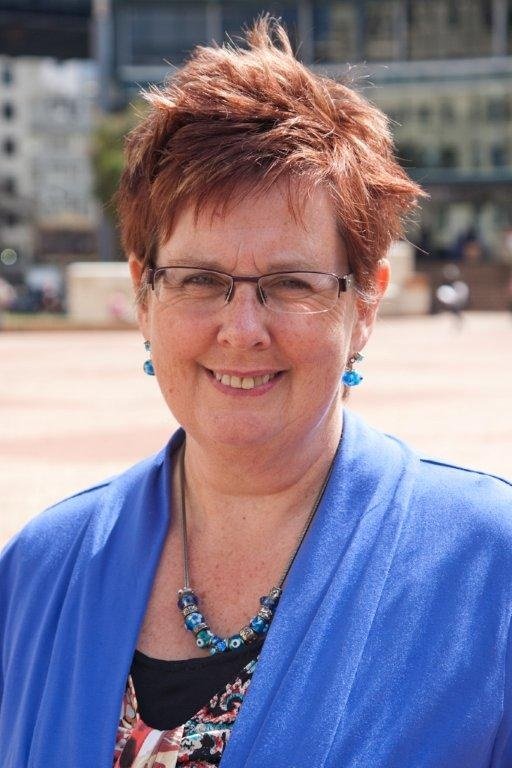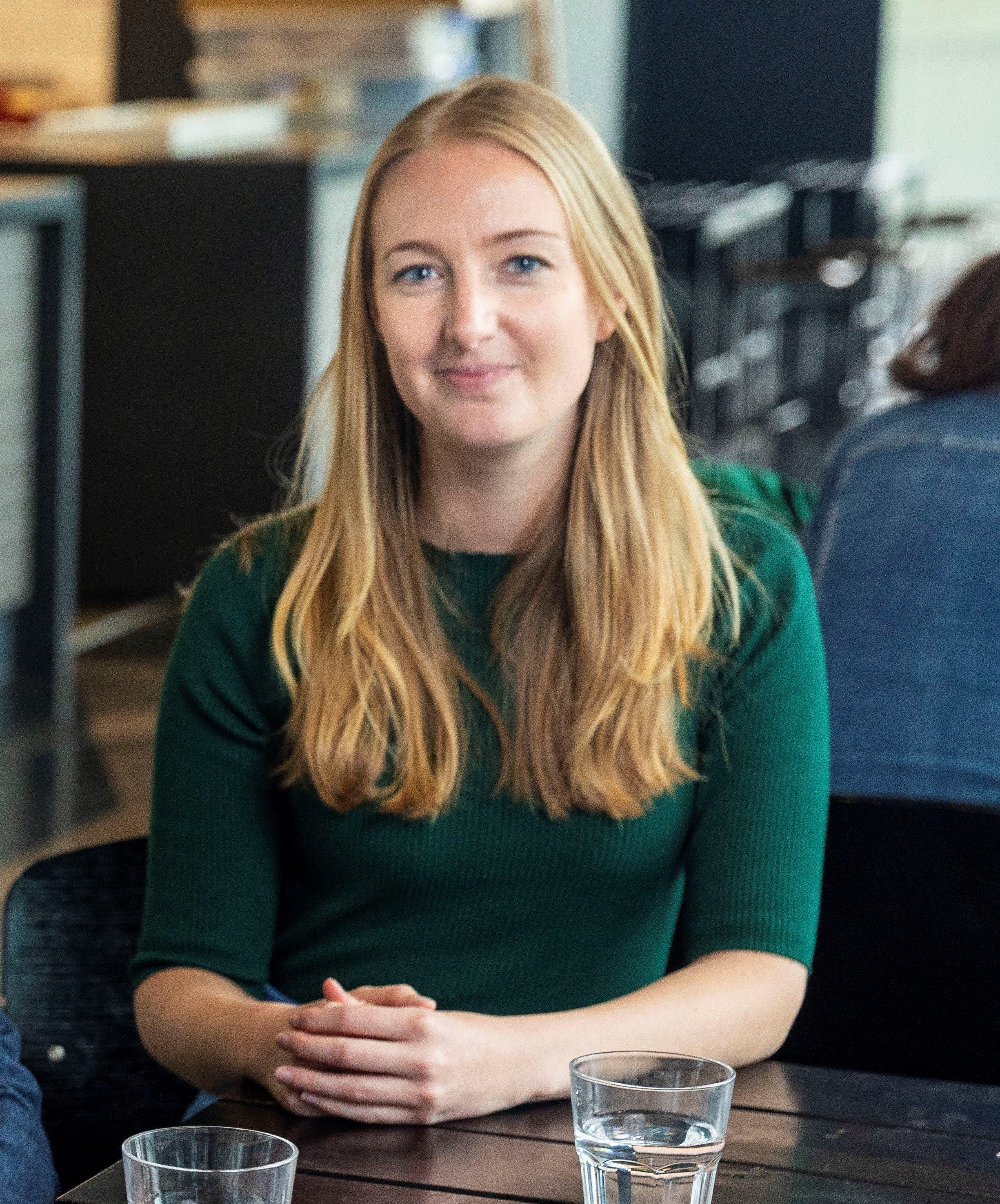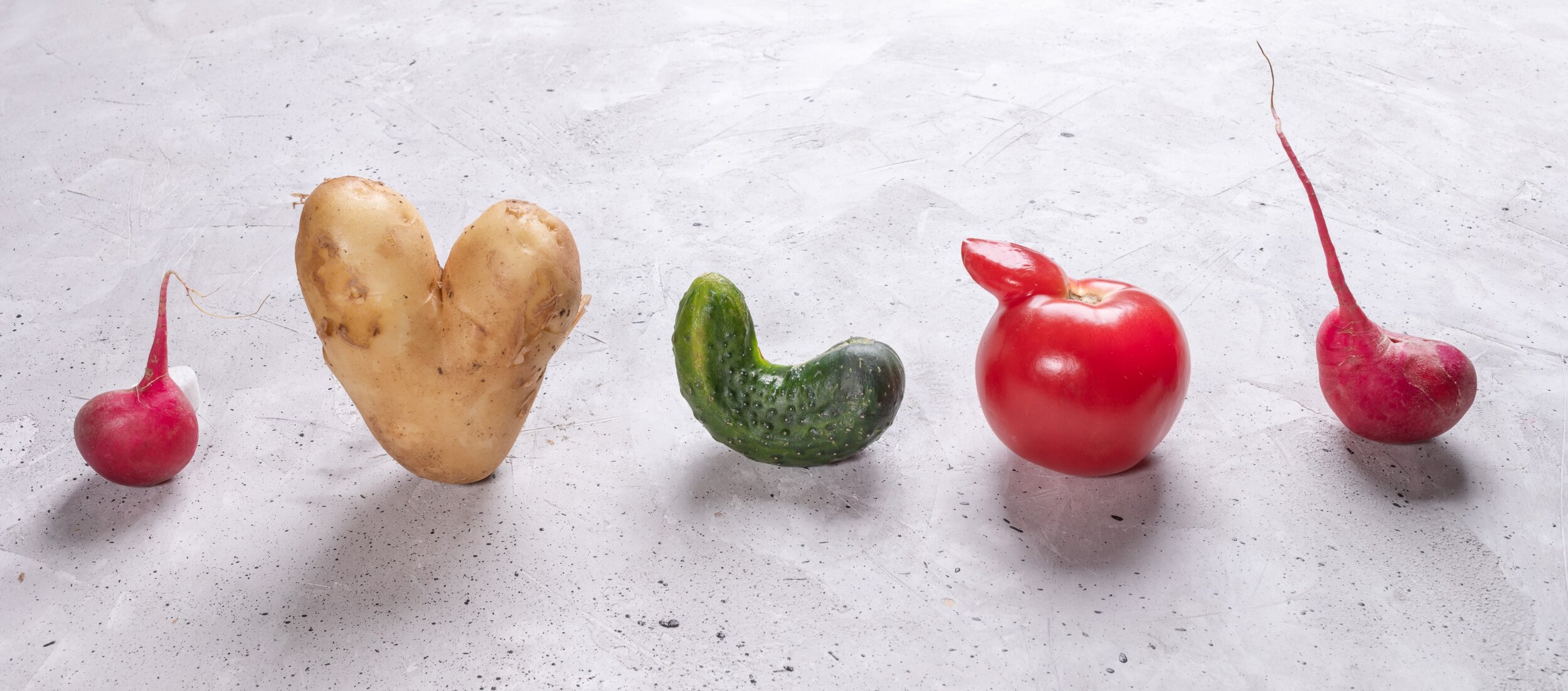
Our People
Food Waste Innovation researchers measure food waste, develop reduction strategies, apply innovative technology, and work to modify producer and consumer behaviour.
Steering Committee
Professor Miranda Mirosa
Department of Food Science
-
Professor Mirosa is the Director of Food Waste Innovation and research leader for the Social Innovations subtheme.
Mirosa’s behavioural research combines knowledge from marketing and psychology to enhance food system sustainability. She develops evidence-based solutions for behaviour change, including identifying barriers, designing interventions, and piloting strategies before widespread implementation.
Mirosa offers academic consultancy on food waste to government and businesses. She authored The Mirosa Report for the Parliamentary Environmental Committee, addressing food waste in New Zealand and offering recommendations for action.
As Co-Chair of the New Zealand Champions 12.3 initiative, she collaborates with a coalition dedicated to halving food waste by 2030 and achieving Sustainable Development Goal (SDG) Target 12.3.
Professor Sheila Skeaff
Department of Human Nutrition
-
Professor Skeaff is the research leader for the Metrics and Management subtheme.
Skeaff's work on waste aims to understand the volume and nature of food being thrown away. Obtaining baseline data along the food supply chain is needed to inform food waste prevention strategies that make the biggest impact with the least resources. By using robust, internationally recognised methodology to quantify food waste, the success of these strategies can be evaluated and improved. Her measurement work to date covers a range of sectors, including post-harvest and retail.
Margaret Thorsen
Key Researcher
-
Since completing an MSc focusing on food loss in the horticulture sector in 2022, Thorsen has supported research undertaken by the Food Waste Innovation team. Thorsen is now the Key Researcher of Food Waste Innovation.
Thorsen has worked as a dietitian for over twenty years, predominantly in the hospitality sector and with other organisations within the food supply chain. Her research interests include pragmatic approaches for food waste reduction, the nutritional benefits of food waste reduction, and the optimal use of food by-products, including upcycled foods.
Francesca Goodman-Smith
International Representative
-
Goodman-Smith is our International Representative. She is passionate about sustainable resource use and creating innovative solutions to environmental challenges. Most recently, she was the Waste Minimisation Manager at Foodstuffs NZ before joining the Fight Food Waste Cooperative Research Centre team in Brisbane, Australia. Her background is in nutrition and food science, and she completed her MSc in 2017, which focused on food waste in the retail sector. She has experience across government, NGOs, academia, and the private sector. Goodman-Smith’s research has focused on food waste in consumer, retail and hospitality sectors of the food supply chain, including quantifying retail food waste in New Zealand. In her role at Foodstuffs NZ, Francesca solidified research and industry partnerships to understand the emerging sector of upcycled foods, where surplus and by-products are transformed into new food products.
Professor Phil Bremer
Department of Food Science
-
Professor Bremer is the research leader of the Technical Innovations subtheme.
Research interests:
The development and validation of technologies to enhance food safety and shelf-life
Understanding consumers’ willingness to accept new food concepts and new food processing technologies
The food safety implications of recycling / upcycling foods or packaging materials
How to most effectively promote food safety messaging to consumers
Consumer behaviour and food choice
Understanding the impact of raw material variation and processing practices on the quality and shelf-life of foods.
Professor Lee, Tzong-Ru
International Advisor (Asia)
-
Professor Lee, Tzong-Ru, is a professor in the Department of Marketing, specializing in sustainable marketing, AI applications, supply chain management, and entrepreneurship strategy. He has served as a Fulbright Visiting Scholar in the United States and a visiting professor at the University of Alberta in Canada and the University of Maryland in the United States. He is currently the advisory board at the AI Centre for Decision Analytics (AI4DA) at the University of Alberta.
Professor Lee has long been engaged in international academic-industry collaborations with countries such as Canada, the Czech Republic, and Austria. His research focuses on the application of AI and innovative technologies in reducing food waste and promoting the circular economy. Dedicated to integrating research with practical implementation, he actively promotes sustainable food systems through multinational cooperation aimed at minimizing food waste.
Principal Investigators
Professor Hugh Campbell
Sociology, Gender Studies and Criminology Programme
-
Dr Campbell's expertise includes the sociology of food waste, agricultural sustainability, new environmental governance, alternative agriculture commercialisation and new socio-technical food assemblages.
Professor Kirsten Robertson
Department of Marketing
-
Dr Robertson's research expertise includes consumer behaviour and well-being, including a focus on food waste.
Dr Samuel Wardell
Research Fellow, Department of Microbiology & Immunology
-
Dr Samuel Wardell (Research Fellow, Department of Microbiology & Immunology) is an evolutionary microbiologist who focuses on how bacteria evade the different ways we try to eradicate them. This focus includes developing novel strategies to prevent the bacteria which cause food spoilage with the goal to increase food safety and to minimise food waste.
Associate Professor Azam Ali
Department of Food Science & Centre of Bioengineering & Nanomedicine
-
Dr Ali has research expertise in bio-based materials (biomaterials), biopolymers, process engineering, functional and edible packaging, bioactives, and developing added-value products.
Dr Sean Connelly
School of Geography
-
Dr Connelly has research expertise in sustainable food systems, food policy, and social economy.
Dr Ray O'Brien
Head of Sustainability | Tumuaki o Toitū te Taiao
-
Ray leads the development and implementation of the University’s Sustainability Strategic Framework. An integral part of that strategy is to develop opportunities for learning and research that use the University as a living lab. This opens opportunities for students to become part of the transition to a more sustainable campus but also for the learning and insights they develop to be disseminated to a wider audience.
Professional Practice Fellow Dr Erin Young
Department of Food Science
-
Young recently completed a PhD in Consumer Food Science and is now working as a post-doctoral researcher. Young’s main working background is in technical packaging development, working with some of New Zealand’s most iconic brands. She is interested in the role packaging plays in sustainable food production, including reducing food waste, food safety, and consumer food choice. She is also interested in using eye-tracking and physiological measures to understand consumer food choices further.
Professor Craig Bunt
Agricultural Innovation Programme
-
Dr Bunt’s research expertise ranges from novel pharma/agri-pharma formulations to composite bio-materials with a particular focus on electro-spinning, 3D printing, and bio-fibre innovations.
Dr Rob Hamlin
Department of Marketing
-
Dr Hamlin's expertise lies in measuring consumer reactions to packaging and how packaging communicates with customers to achieve socially beneficial outcomes.
Associate Professor David J. Burritt
Department of Botany
-
Dr Burritt’s research looks at oxidative stress and redox biology, with applications to the food industry, including shelf life and food storage.
Associate Professor Graham Eyres
Department of Food Science
-
Dr Eyres has research expertise in flavour science, sensory perception and in brewing and fermentation. His research interests in the Food Waste Theme are in the utilisation of brewing by-products and the development and evaluation of upcycled food products.
Dr Damian Mather
Department of Marketing
-
Dr Mather's expertise is in marketing knowledge in innovation, branding, pricing and corporate communications.
Professor Lisa McNeill
Department of Marketing
-
Associate Professor McNeil's research expertise is in consumer behaviour and consumption, including sustainable food packaging alternatives in supermarkets.
Professor Indrawati Oey
Department of Food Science
-
Dr Oey's research expertise includes Postharvest Innovation, novel processing technology, bioactives, and edible films.
Associate Professor Mei Peng
Department of Food Science
-
Dr Peng's expertise lies in sensory neuroscience, food psychology and eating behaviour.
Dr Sara Styles
Department of Human Nutrition
-
Dr Styles is a behavioural scientist who combines her background in psychology, nutrition and public health to develop, test, and optimise behaviour change interventions. Using quantitative and qualitative research methods, her role in the Food Waste Innovation Theme is applying behaviour theory to understand and reduce food waste in the aged care sector.
Professor Maree Thyne
Department of Marketing
-
Dr Thyne's research expertise lies in consumer behaviour, sustainable consumption, and consumer socialisation.
Associate Professor Daniel Pletzer
Department of Microbiology & Immunology
-
Associate Professor Daniel Pletzer (Department of Microbiology & Immunology) is an expert in microbiology and antimicrobial resistance, with extensive knowledge of bacterial pathogens and synthetic peptides, focusing on solution for food safety, spoilage prevention, and sustainable food waste management.
Professor Lincoln Wood
Department of Management
-
Professor Wood's research expertise is in logistics and supply chain management with a focus on industrial food production, transport, and waste.
Dr Jessica O’Connor
AgResearch & Department of Food Science
-
Thesis title: Towards a Circular Bioeconomy, PhD Candidate
O’Connor’s PhD will explore the behaviours and practices leading to food loss and waste at the production end of the food supply chain in New Zealand. This research also aims to identify appropriate tools or innovations to address loss points and facilitate the transition into a circular bio-economy by ‘closing the loop’. Jess is passionate about New Zealand agriculture and looks forward to contributing to solving escalating issues and risks associated with climatic, environmental, social and finite resource degradation. Furthermore, she hopes this research can help to identify unique opportunities for growing a competitive and innovative rural economy.
Associate Investigators
These are researchers we are connected with from external organisations and institutions working on food waste research and action projects.
Dr Victoria Egli
Research Fellow, School of Nursing, University of Auckland
-
Dr Egli’s work focuses on the impact of neighbourhoods on children’s health. Her current research revolves around effectively communicating health messages to children, with a strong emphasis on child-centred approaches and promoting children's rights. She actively participates as an investigator in several research projects that incorporate a food waste component, including SoilSafe Kids, Neighbourhoods and Health, and the Covid Kai Survey.
Dr Luca Serventi
Department of Wine, Food, and Molecular Biosciences, Lincoln University
-
Dr Luca is the world's expert on upcycled water from legume processing. You might know of it as Aquafaba and Liluva. Soaking, boiling and sprouting legumes generate large volumes of wastewater rich in fibre, protein, minerals and bioactives. In addition, okara, from plant-based beverages, is an excellent source of macronutrients. Upcycling can provide new food ingredients to improve texture and human nutrition. Upcycled foods are sustainable for the industry (cheap hydrocolloids, local) and the environment (low footprint).
Dr Alice Beban
Senior Lecturer, Massey University
-
Dr Beban is an environmental sociologist at Massey University, interested in agrarian change and global food politics. Her research seeks to understand people's changing relationships with food, land and water from a feminist political ecology perspective. As a principal investigator, she is currently leading several projects that encompass food sustainability and food waste components, including mapping changes in food cultures in dam-affected communities along the Mekong River and understanding the diverse perceptions groups of New Zealanders hold toward farming.
Dr Subhamoy Ganguly
Senior Lecturer, University of Auckland Business School
-
Dr Ganguly’s research uses optimisation methods to address problems in operations and supply chains. His current research interest includes understanding and reducing food wastage, particularly in the lower levels of the supply chains – in households and in retail stores. Before Auckland, Ganguly taught operations management at business schools in the United States and in India. Prior to becoming an academic, he has been a supply chain manager and an IT consultant.
Dr Louise Lee
Independent Researcher
-
Dr Lee is passionate about reducing food waste and supporting food-secure communities. She is actively involved in food rescue both as a volunteer and a researcher. Between 2016 to 2020, she volunteered with the Wellington food rescue organisation, Kaibosh. Currently, she volunteers with Waiwaste in Masterton as a food rescue sorter and board member. Lee’s research focuses on collective approaches to address sustainability challenges, focusing on food rescue, food security, and the reduction of single-use plastics in the food retail industry.
Ashmita Pandey
PhD Student, Massy University
-
Dedicated agricultural professional with extensive experience working directly with farmers at both grassroots and strategic planning levels. Ashmita is committed to addressing food and nutrition security challenges and has a strong background in sustainable development initiatives.
She is currently pursuing a Ph.D. at Massey University. Her research is focused on understanding the magnitude and determinants of food loss and waste in the broccoli supply chain from seasonal and varietal perspectives.
Dr Emma Sharp
Senior Lecturer, School of Environment |Te Kura Mātai Taiao, University of Auckland | Waipapa Taumata Rau
-
Dr Sharp’s work in food waste looks at household food waste and meat waste in industry and retail over Covid-19 lockdowns, fish' waste' generated by Kai Ika and fish parts redistribution initiatives, and 'waste' as it relates to soil - work on composting and gardening, and the work of centralised and decentralised composting systems. Sharp has broader research interests in community food politics and soil values.
Lisa Busch
Research, Policy & Analysis, Masters Student, University of Auckland
-
Lisa is an experienced lawyer completing a Master's in Public Policy at the University of Auckland. Lisa is currently focused on the impact of food waste on climate change and the transfer of successful international food waste policies to Aotearoa. Lisa believes sound food waste policy design aligns with business and consumer drivers and utilises best practices to enable an efficient and circular food system. Lisa is researching (and advising the NZ Food Waste Champions 12.3) the establishment of a voluntary industry commitment to food waste in Aotearoa. This internationally successful policy programme provides a proven framework for food businesses to collaborate as a sector and to target, measure and take action on their food waste.
Dr Deepa Goswami
PhD Student, Department of Education, University of Waikato
-
Dr Deepa is a sustainability advisor and researcher working at the intersection of behaviour change, and community engagement. Her PhD focused on Food Waste Literacy with adolescent students—developing a framework to support young people in understanding and reducing food waste through education and everyday practice.
Now, she applies this research in community settings, schools, and organisations to support food waste minimisation as part of broader waste reduction strategies. Her work centres on creating inclusive, values-based learning that empowers people to take meaningful action toward overall waste reduction.
Timothy Lynch
Lecturer, Otago Polytechnic
-
Lynch is a lecturer at the Food Design Institute at Otago Polytechnic. His background is as a chef with over two decades of professional cooking experience in New Zealand and Europe. His teaching interests include the creation of platforms for consumer-led product development and, within this, exploring consumer values regarding notions such as provenance and sustainability.
Dr Gradon Diprose
Manaaki Whenua – Landcare Research
-
Dr Diprose is an environmental social science researcher based at Manaaki Whenua – Landcare Research. Diprose has a background in human geography and planning and is currently involved in collaborative research on food security, waste management and circular economy practices. This research focuses on the intersection of food rescue, community food growing and distribution infrastructure, diverse and sharing economies, and local community solutions to manage organic waste resources.
Liam Hoffman
Otago Polytechnic
-
Hoffman runs the Pōpopo wormporium at Otago Polytech. A passionate gleaner, resource rescuer and lover of plants, he is responsible for processing the organic waste made around campus into compost. Frequently face to face with the magnitude of material we dispose of, Hoffman believes experiencing "waste" is the nexus between people, materials, culture and ecology.
Dr Valerie Manna
Director, Pure Consulting
-
Director, Pure ConsultingDr Manna helps manufacturers find value in waste through a design thinking process, focusing on improving consumer well-being. She facilitates design teams and brings expertise to projects, connecting practitioners, academics, and policy-makers. Her work includes collaborations on projects like Te Taiao, a new way forward for Aotearoa New Zealand’s food and fibre sector, and publications in top journals such as the Journal of Marketing Management, Marketing Theory, and the Journal of Marketing Education.
Associate Professor Dominic Agyei
Department of Chemistry, Monash University
-
Dr Agyei's research expertise includes bioprocess engineering, bioinformatics-driven discovery of functional/bioactive metabolites, and enzyme-based valorisation of food wastes.
Dr Joya Kemper
Senior Lecturer, Department Management, Marketing and Tourism, University of Canterbury
-
Dr Kemper’s research revolves around sustainable and ethical production and consumption. Her research explores consumer attitudes and behaviours towards sustainability and barriers towards change. She focuses on individual behaviour change (i.e., identifying barriers and examining interventions for change) and systemic change (i.e., looking at the broader institutional environment to enable behaviour change). Kemper has focused on food sustainability issues from food waste to plastic waste, future foods, organic foods and meat reduction. She participates regularly in interdisciplinary research, engaging with disciplines such as Population Health, Nutrition, Geography and Engineering.
Dr Biniam Kebede
Department of Food Science, University of Guelph
-
Dr Kebede has research expertise in data mining, predicting and optimising processing and shelf-life changes.
Postgraduate Students
These are University of Otago PhD or Master students working on food waste-related research.
Elena Piere
PhD Candidate | Department of Food Science
-
Piere is currently working on a PhD project with Food Waste Innovation, which aims to reduce waste in the aged care sector by 10%. The research will help to understand the current state of food waste within the aged care sector, and will use behaviour science theory to design interventions to help enable aged care facilities to reduce their food waste.
Harsh Khatwani
PhD Student | Department of Marketing
-
Harsh is currently pursuing a PhD focused on using virtual reality (VR) to influence behaviour towards reducing food waste. By designing and implementing a 360 VR intervention, his research aims to explore how immersive experiences can encourage households to adopt more sustainable food practices. The research combines elements of behaviour change theory, science communication, and social marketing to develop effective strategies for reducing food waste at the household level.
Alumni
Ruijun (Charlene) Li: completed a PhD in 2023 on the Metrics and Management of Food and Plastic Waste Associated with Online Food Delivery in China.
Lance Aya: Lance completed a BAppSc (Hon.) in 2022, looking at consumer reactions to the packaging/label design of 'upcycled' foods.
Elizabeth Cunliffe: Lizzie completed a BAppSc (Hon.) in 2022, looking at insights into upcycled foods from a manufacturer’s point of view.
Shaina Ebron: Shaina completed a BAppSc (Hon.) in 2022, looking at consumer reactions to the packaging/label design of 'upcycled' foods.
Molly Goodison: Molly completed a BAppSc (Hon.) in 2022, investigating food waste in central Otago food processors. Molly’s project was commissioned by the Central Otago Regional Council.
Sian Menson: Sian completed a BAppSc (Hon.) in 2022, looking at brewery waste and byproducts. Sian’s research was commissioned by Emerson’s
Hayden Prenter: Hayden completed a Master of Sustainable Business in 2022, looking at the relationship between consumer food waste practices and mindfulness.
Emma Roberts: Emma completed a BAppSc (Hon.) in 2022, looking at consumer reactions to the packaging/label design of 'upcycled' foods.
Brian Thong: Brian completed a BAppSc (Hon.) in 2022, looking at the nutrition of upcycled foods. Specifically, Brian worked with Rescued Kitchen and different recipes for upcycled bread.
Kaylē Baker: Kalyē completed a master’s in Sustainability at the Otago Business School in 2021. Her thesis looked at the diversity of social capital generated by the community dining concept of Everybody Eats.
Finn Campbell & Lydia Le Gros: Finn and Lydia teamed up to carry out a seed-funded project in 2021 to create a resource connecting food waste and climate change, targeted at the student population to encourage interest in food waste reduction.
Emily Fanning: Emily completed an MSc in 2021, looking at the development of a bioprocess to convert lactose in whey waste from cheese production. Emily is now working on a PhD outside the realm of food waste research.
David McKenzie: David worked with Food Waste Innovation in 2021, particularly around raising awareness for International Food Loss and Waste Awareness Day. David was instrumental in starting the student group at the University of Otago, ‘Slow Food Youth Otago’. David is a food journalist and enthusiast and is now living in Wales, working on farms.
Dr Elisabeth Boyle: Elisabeth completed an MPlan in 2020 looking at barriers to composting for residents in the Dunedin tertiary precinct.
Dr Annesha Makhal: Annesha completed a PhD in 2019, looking at children’s perceptions of ‘ugly’ fruit and vegetables.



